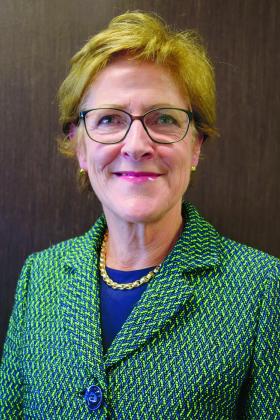Lung cancer is still a killer

Jenny Firman
Chief Health Officer
Department of Veterans’ Affairs
There’s a new screening program to detect this deadly disease. Are you eligible?
I am sure many of you will remember a time when smoking was common in Australian society and the workplace. I remember when I joined the Navy many years ago that it was common for people to smoke at their desks while working. Cigarettes were relatively cheap and available for even less when away at sea or on deployment.
Smoking rates have fallen steadily in Australia over the last 30 years. The Australian Institute of Health and Welfare reports that the proportion of people aged 14 and over who smoke daily has more than halved: from 24% in 1991 to 8.3% in 2022–2023. This is very important, as about 20% of all cancer deaths are a direct result of smoking.
Despite the falling rates of smoking, lung cancer is the fourth most diagnosed cancer in Australia and the leading cause of cancer-related death in Australia. It is estimated that it accounted for 17% of all cancer deaths in 2022, and that there were more than 15,000 new cases and nearly 9,000 deaths from lung cancer in Australia in 2024.
You may think this is surprising given that smoking rates are falling. Unfortunately, lung cancer is often diagnosed late, when there is advanced stage disease for which there are limited treatments, resulting in poor survival.
To address this, the Australian Government is introducing a National Lung Cancer Screening Program (NLCSP). Similar screening programs already exist in the UK, Poland and Croatia. Screening can detect up to 70% of lung cancers in the early stages. A shift in the stage at which lung cancer is diagnosed has been shown following the introduction of lung cancer screening, with more lung cancers diagnosed at stages 1 and 2.
The program started on 1 July 2025 and eligible Australians aged 50–70 are able to participate and have a low-dose Computed Tomography (CT) scan every 2 years to look for signs of lung cancer. You are eligible if you are asymptomatic and considered high risk due to being:
- aged between 50-70 years
- a smoker or having quit smoking in the past 10 years
- a smoker of at least 30 pack-years (e.g. smoking a pack of cigarettes per day for 30 years or two packs a day for 15 years at any point in your life).
While smoking is not the only cause of lung cancer, the screening program is targeting smokers or ex-smokers as this group can be identified for screening. Your general practitioner (GP) can discuss the program with you to decide if screening is appropriate and then complete an NLCSP low-dose CT scan request form. The cost of the scans are covered by Medicare. The costs of the consultation with your GP will be covered by DVA for those with a Gold Card and eligible veterans with a White Card.
The National Screening Register (an opt-in process) will maintain a record of your screening and send reminders as needed. This is an important national database for the program and is used already for bowel cancer and cervical cancer screening.
Your GP will be able to discuss with you the risks of screening and any concerns you have. The CT scan is low-dose and the radiation dose is less than one year of exposure to natural radiation in normal life. Following the scan, your GP can discuss the results with you, including any further investigations that might be needed.
Some scans are expected to show evidence of other diseases, not just lung cancer. For instance, some scans might show evidence of prior tuberculosis infection, emphysema or heart disease. It is important that these “incidental findings” are also acted upon.
Of course, for those who are still smoking this is an opportunity to consider stopping. DVA supports smoking cessation aids and medication. Other supports, such as counselling, are available through Non-Liabilty Health Care for mental health and you may wish to discuss these with your GP.
This new screening program is an important step in improving the outcomes for lung cancer and is open to all Australians, including veterans. Take this opportunity to ask your doctor about this and other available preventive health screening at your next visit.